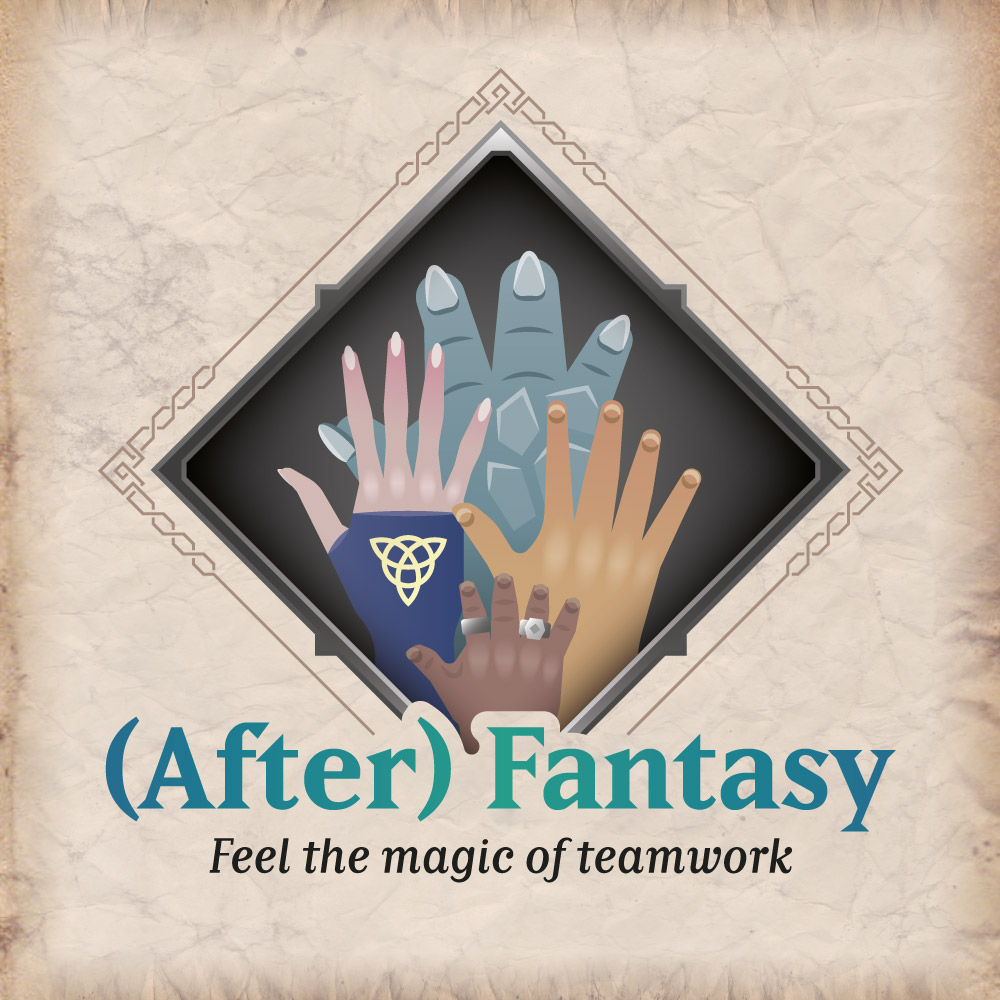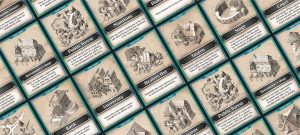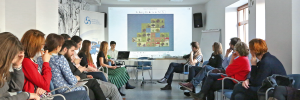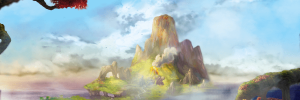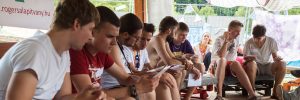Gameplay
The (After) Fantasy simulation is prepared to be played in rounds – months. There are 4 modules (types of rounds) that can be played separately or in chronological order depending on the aims of the workshops. The introduction above includes detailed information that is common for all modules.
Each module can be repeated multiple times depending on how much time you have, and the dynamics of the groups, and the level of understanding participants achieve in each round.
With this modular construction, the Gameflow is highly adjustable to your needs and timeframe. You can accelerate the simulation or underline some learning opportunities by skipping some of the modules or repeating others multiple times. You are welcome to slightly edit the game flow to fit within the context of your workshop.
Below you will first see the list of 4 modules as they may appear chronologically in the simulation:
- Module 1 – Group work
- Module 2 – Group resilience
- Module 3 – Free group work
- Module 4 – Group development
Context
Participatory learning processes in civic education often prove challenging. An innovative proposition for actively engaging activities lies in serious games, especially social simulations. Serious games combine game elements and mechanics with a concrete goal such as acquiring knowledge or increasing skill.
Social simulation is an experiential process that involves a group exploring a complex reality. It forces participants into situations where collaboration is a valid and beneficial option, but players are also encouraged to stand their ground.
There is great untapped potential in social simulations for community organizers. The methodology proves very suitable for getting complex issues across and experiencing how politics and interactions work within societies.
Experience-based learning combined with role-playing and gaming elements makes newly gained knowledge extraordinarily sustainable. “Play” has been identified in media research as a required element of “21st-century literacy”, “a mode of active engagement, one that encourages experimentation and risk-taking, one that views the process of solving a problem as important as finding the answer” (Jenkins 2009, 40).
Target group
Benefits
- Enables players to experience group building processes.
- Helps players to navigate and identify different types of decision making styles.
- Supports players in learning how to earn how to prioritize and divide tasks and responsibilities.
- Increases players’ leadership skills.
- Increases players’ communication skills.
- Increases the resilience of a group.
Trivia
The (After)Fantasy simulation was created as part of the “Education for Citizenship” project, which received funding of EUR 171,017.00 from Iceland, Liechtenstein, and Norway under the EEA Grants.
Type
Number of players
Number of moderators
Duration
Materials
- Board game
- Role cards
- Moderator Handbook
Difficulties
- Requires a lot of preparation: printing and cutting cards
- Quite complex workshop scenario
Technical requirements
- Print game materials
- 5 tables
- Chairs for participants

